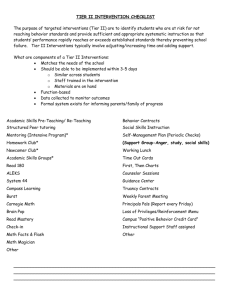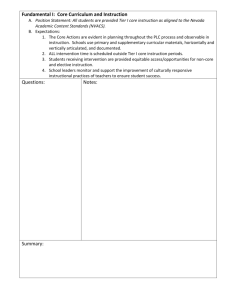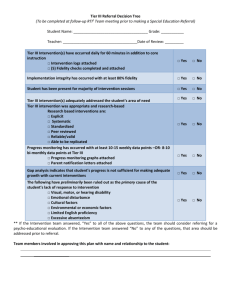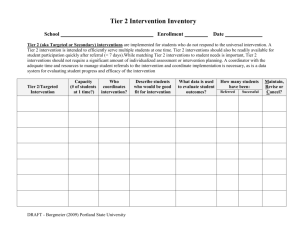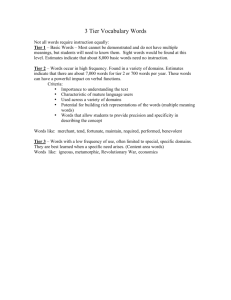ROSHONG, EDWARD D., Ph.D., December 2009 School Psychology
advertisement
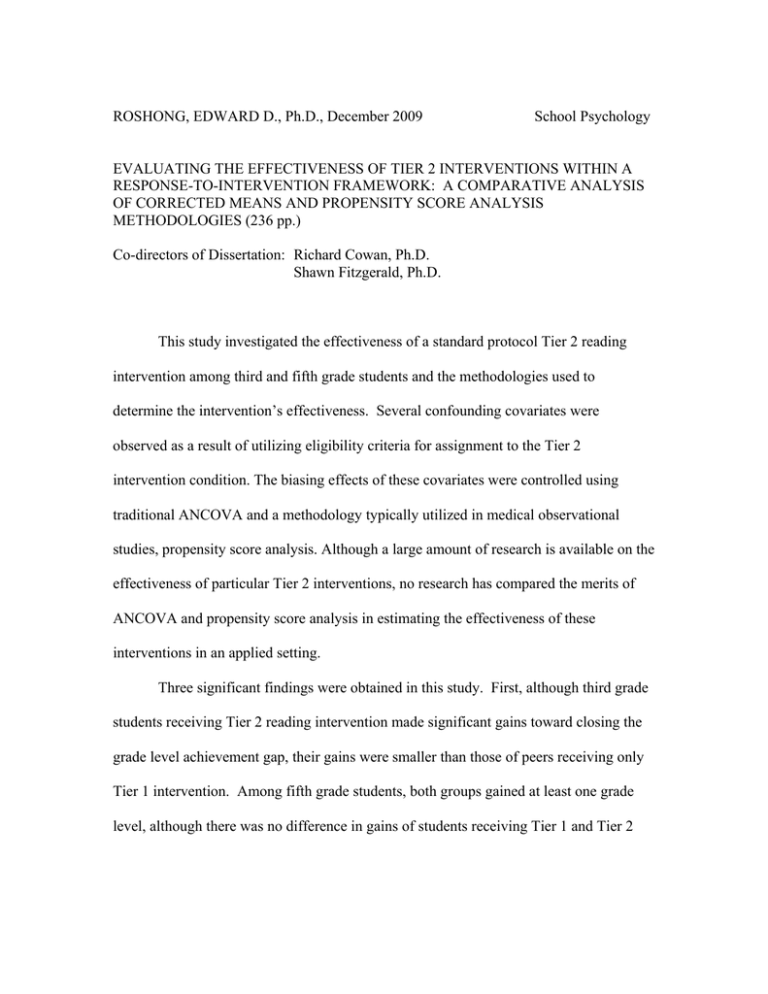
ROSHONG, EDWARD D., Ph.D., December 2009 School Psychology EVALUATING THE EFFECTIVENESS OF TIER 2 INTERVENTIONS WITHIN A RESPONSE-TO-INTERVENTION FRAMEWORK: A COMPARATIVE ANALYSIS OF CORRECTED MEANS AND PROPENSITY SCORE ANALYSIS METHODOLOGIES (236 pp.) Co-directors of Dissertation: Richard Cowan, Ph.D. Shawn Fitzgerald, Ph.D. This study investigated the effectiveness of a standard protocol Tier 2 reading intervention among third and fifth grade students and the methodologies used to determine the intervention’s effectiveness. Several confounding covariates were observed as a result of utilizing eligibility criteria for assignment to the Tier 2 intervention condition. The biasing effects of these covariates were controlled using traditional ANCOVA and a methodology typically utilized in medical observational studies, propensity score analysis. Although a large amount of research is available on the effectiveness of particular Tier 2 interventions, no research has compared the merits of ANCOVA and propensity score analysis in estimating the effectiveness of these interventions in an applied setting. Three significant findings were obtained in this study. First, although third grade students receiving Tier 2 reading intervention made significant gains toward closing the grade level achievement gap, their gains were smaller than those of peers receiving only Tier 1 intervention. Among fifth grade students, both groups gained at least one grade level, although there was no difference in gains of students receiving Tier 1 and Tier 2 interventions. Third, similar effect sizes were reported by ANCOVA and propensity score analysis approaches in both the third and fifth grade studies. Propensity score analysis resulted in similar conclusions while reporting treatment effects in terms of actual criterion scores (i.e., Ohio Achievement Test-Reading). Traditional ANCOVA analysis reported treatment effects as adjusted criterion scores which are not necessarily reflective of achievement test scaling. This study has significant implications for future research and current practice regarding school psychologists’ role in systems consultation, improving achievement for all students, and data-based decision making within a response-to-intervention framework.
